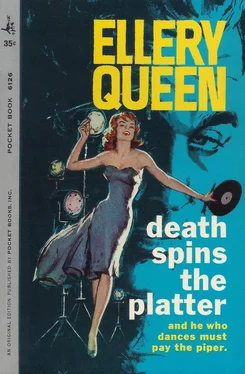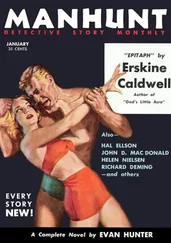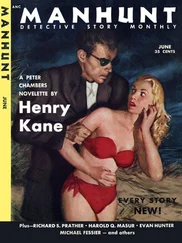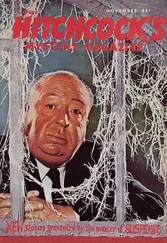Ellery Queen
Death Spins the Platter
List of Principals
in
“The King’s Final Show”
JIM LAYTON — Lanky Los Angeles Bulletin reporter, he planned only to cover the final show of “The King’s Session,” but had to ad lib as romantic lead
WAYNE MISSION — Loyal president of the Los Angeles Tutter King fan club, King’s devoted subject suddenly found his allegiance without an object
NORA PERKINS — Chubby vice president of King’s fan club, the infatuated youngster furthered the plot through a revealing scene — played in the ladies’ room
TUTTER KING — Popular disc jockey accused of accepting payola, the incorrigible “bachelor” gave his greatest performance — but didn’t get to read the reviews
LOLA ARKWRIGHT — King’s curvy redheaded girl friday — and every other day — she was tired of playing second fiddle in a lengthy marital opus
GEORGE HATHAWAY — Handsome, white-haired station manager, the former silent-screen star made his acting comeback — and couldn’t think of anything to say
HUBERT STANDER — Tall, distinguished Chairman of the Board, he was a man of action — most of which was performed without an audience
NANCY KING — Svelte, expensive brunette, King’s beautiful wife was already out of the castle — but didn’t intend to abdicate the throne
SERGEANTS HARRY TRIMBLE and Ed Winterman — Tough homicide team, they entered after the climax — and tried to untangle the plot
Layton engineered his lanky frame from behind the wheel of his battered six-year-old coupe. He had parked in the middle of a long line of racy little foreign cars, most of them convertibles, and he half-expected some flunky to come rushing out of the building and order him to get his proletarian heap the hell off the premises.
The fantasy in white stucco that housed the TV station was only one story high, but it monopolized an entire block along Sunset Boulevard. The entrance from the parking lot brought him into the reception room of a dream world. It was presided over by a glittery blonde who looked as if she had stepped out of a time machine from the year 8162.
The futuristic blonde looked him over in a crystalline sort of way, and he said, “I’m Jim Layton of the Los Angeles Bulletin .”
“Oh, yes,” she said, thawing. “You’re covering The King’s Session final show. But it doesn’t start for over an hour.”
“I thought I’d interview the two principals beforehand.”
“Whatever you’d like,” the receptionist said. Whatever? Layton thought. She looked good enough to eat. “Mr. Hathaway said you’re to have the run of the station. Would you like to talk to Mr. King first?”
“Is he here?”
“I think he’s in his dressing room. Number 2.” She pointed a long platinum-colored fingernail toward a corridor to the left. “Go past those offices and turn right at the end of the hall. Or...” Swiveling in her chair, she indicated another hallway. Everything swiveled with her. “This one takes you around to the main entrance to Studio A, where King’s Session is telecast. You might like to see it before you talk to Mr. King. If you’ll go on through Studio A and out the opposite door, you’ll find yourself at the same turn in the hall as if you went the other way.” She smiled at him. “Get it.”
“I’d sure like to,” Layton said regretfully, “but, baby, I’m working.” He decided on the official studio route.
The door marked Studio A opened into a big functional room with a naked floor. Spotted about were three unmanned TV cameras, three overhead microphone booms, and, off to one side, a record turntable. The King’s Session had the 3 P.M. time slot and it was only ten of two, but already about fifty teenagers of both sexes were clustered like grapes around the dance floor, and others were lying all over the folding-type chairs lining the walls.
As Layton moved past one of the clusters he heard a boy say, “After he opens the show, at my signal everybody start clapping and whistling and yelling and don’t stop, and I mean don’t. Let ’em all know what we think of this crummy deal.”
Layton paused curiously. The boy was thin and serious-faced, wearing horn-rimmed eyeglasses with thick lenses. He was about seventeen. This might be as good a time as any to get a typical Tutter King fan’s viewpoint about the disc jockey’s troubles.
Edging into the group, he said to the boy, “I’m from the Bulletin. If I get your pitch, you’re organizing a claque for King—”
“A what?” the boy said.
“Well, it’s a kind of rooting section, only it gets paid.”
A rather ominous quiet fell. The bespectacled boy said, “You mean, mister, you think Tutter King’s paying us — or me — to whip up a storm today?”
“Is he?” Layton asked.
“No,” the boy said. He turned away.
“Wait a minute, kid,” Layton said. “No hard feelings. If it’s not for dough, then why are you doing it?”
The boy turned back. “To show the viewers and the brass of this station we’re still behind Tut a hundred per cent.” They were all around Layton now, making multiple sounds of approval. Absurdly, he began to feel uneasy.
“You don’t think King should have been fired?”
A plain-looking girl, no more than sixteen, thrust her plump face toward Layton. “Tutter’s done more for us kids than anybody on television. They’re always yacking about juvenile delinquency, but when a good, clean program like the King’s Session comes along, they kill it!”
“You think the station had any choice?” Layton asked. “In the face of public opinion?”
“They were probably pressured into it,” the boy with the glasses admitted. “But the public’s all wet. What did Tut King do that was so bad?”
Layton said dryly, “He admitted to a congressional investigating committee that he’d accepted more than a hundred thousand dollars a year under the table to plug second- and third-rate records, that’s all.” He took a notebook out of his pocket. “Mind giving me your names?”
“I don’t mind one dam bit,” the boy said. “I’m Wayne Mission, and I’m president of the L. A. Tutter King Fan Club. And you can quote anything I say.”
“Me, too,” the plump girl said. “Nora Perkins. I’m vice president.”
Others in the group volunteered their names, and Layton dutifully wrote them all down. He turned back to the boy with the glasses. “Wayne, don’t you think Tutter King was morally wrong in accepting payola to plug inferior records?”
“Morally, shmorally,” the boy retorted. “He paid his taxes, didn’t he? Who isn’t on the take these days? Cops organizing burglary rings. Politicians on big lobbyists’ pay rolls. Labor leaders robbing union tills and selling out their own members. Industry in price-fixing conspiracies, doing phony advertising, mislabeling. And all those great big marvelous TV giveaway shows a while back — all fixed. Payola’s everywhere, mister. So why all this jazz about Tutter King plugging some records for a fee? Who’d he hurt?”
“You,” Layton said.
“Me?” Young Mission was astonished.
“Aren’t you sore, having bad music crammed into your ears just to line a disc jockey’s pockets?”
“Aaah, you squares all act as though Tutter’d violated a sacred trust or something. What’s the difference what records we go for? It’s the beat we dig, anyway. You’d think Tutter’d been selling us dope.”
One of the other boys said mockingly, “Yeah!” and they all laughed.
The kid’s got a point, Layton thought. Maybe in a morally anesthetized society the only sin was to be caught.
Читать дальше








![Ричард Деминг - Whistle Past the Graveyard [= Give the Girl a Gun]](/books/412176/richard-deming-whistle-past-the-graveyard-give-t-thumb.webp)


